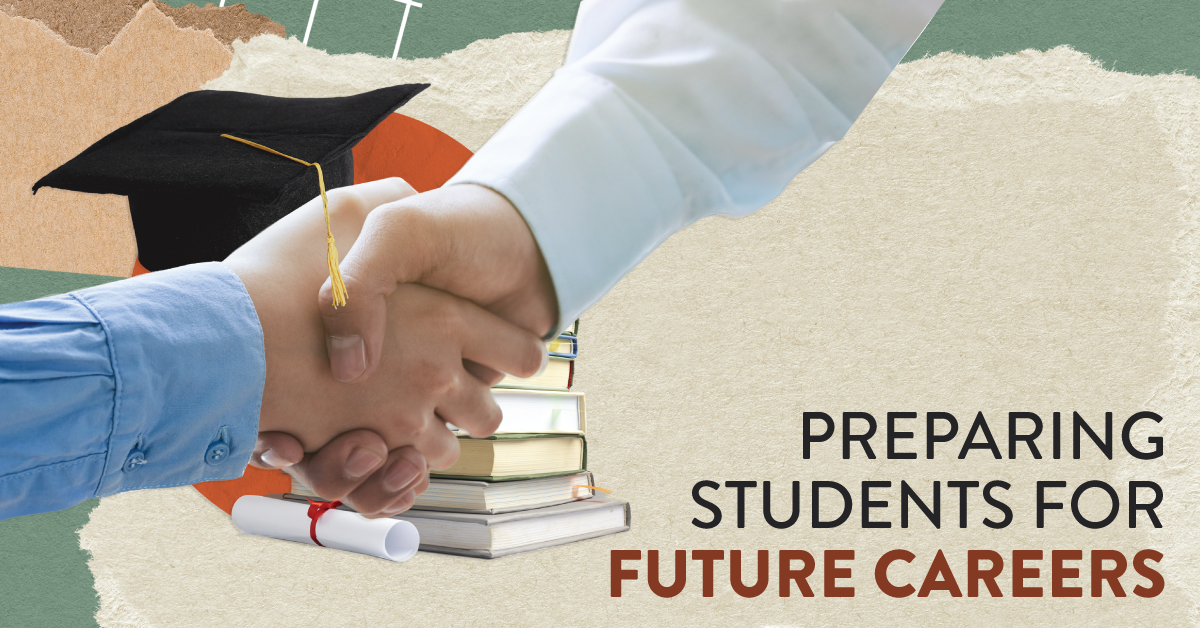

Introduction
In our rapidly evolving global economy, the nature of work is changing at an unprecedented pace. Technological advancements, automation, and the globalization of industries have ushered in a new era, and the jobs of the future look markedly different from those of the past. In this dynamic landscape, the need to prepare students for both domestic and international job markets has become more crucial than ever. This article explores the strategies and approaches to equip students with the skills and mindset required to thrive in the jobs of the future, whether at home or abroad.
1. A Global Perspective on Education
To prepare students for jobs of the future, educators must embrace a global perspective in curriculum design and delivery. This involves cultivating a deeper understanding of international cultures, economies, and industries. Encouraging cross-cultural experiences, such as study abroad programs and international internships, can help students develop global competence. This skill set encompasses cultural sensitivity, adaptability, and effective communication across borders, making graduates valuable assets in today’s interconnected world.
2. Emphasizing Technological Literacy
The integration of technology in the workplace is undeniable. To ensure students are competitive, educational institutions must prioritize technological literacy. Proficiency in coding, data analysis, and digital problem-solving are becoming essential skills. Institutions should provide access to cutting-edge technology and promote digital learning methods to prepare students for tech-driven careers that transcend geographical boundaries.
3. Soft Skills: The Human Touch
While technical skills are crucial, soft skills like critical thinking, creativity, adaptability, and emotional intelligence remain equally vital. These skills are transferrable and adaptable, enabling students to succeed in a wide range of careers. Encouraging teamwork and communication skills, often through group projects or collaborative learning environments, helps students build the interpersonal abilities required to excel both at home and abroad.
4. Lifelong Learning and Adaptability
The concept of a single lifelong career has become outdated. In the jobs of the future, adaptability and continuous learning are paramount. Institutions should foster a growth mindset, encouraging students to embrace change and develop a thirst for knowledge. Graduates who can rapidly acquire new skills a威而鋼 nd knowledge will be better equipped to thrive in dynamic job markets.
5. Experiential Learning and Internships
Hands-on experience through internships, co-op programs, and apprenticeships is invaluable. These opportunities provide students with real-world insights, allowing them to apply classroom knowledge in practical settings. Additionally, internships offer networking opportunities that can open doors to future job prospects, whether domestically or internationally.
6. Career Guidance and Mentorship
Career guidance and mentorship programs can play a pivotal role in preparing students for future jobs. Engaging with industry professionals and mentors can provide valuable insights into the realities of various careers. These relationships can also help students make informed decisions about their career paths and provide guidance on how to navigate the job market effectively, both locally and globally.
7. Encouraging Entrepreneurship and Innovation
The future job landscape will see an increasing demand for entrepreneurs and innovators. Encouraging an entrepreneurial spirit among students can empower them to create their own job opportunities and drive economic growth. Entrepreneurship courses, startup incubators, and innovation hubs within educational institutions can nurture this mindset.
8. Cultural Competence and Language Proficiency
As businesses expand globally, cultural competence and language proficiency are highly sought-after skills. Encouraging students to learn foreign languages and understand diverse cultures can significantly enhance their employability both at home and abroad. This prepares them to work effectively in multicultural teams and navigate international business environments.
Conclusion
Preparing students for the jobs of the future, whether at home or abroad, demands a holistic and forward-thinking approach. It requires educational institutions to equip students with a diverse skill set that includes technological literacy, soft skills, adaptability, and a global perspective. By emphasizing lifelong learning, experiential learning, mentorship, and entrepreneurship, educators can ensure that graduates are well-prepared to thrive in the ever-evolving job market of the future. In doing so壯陽藥 , we empower the next generation to not only succeed in their careers but also contribute to the global economy and society as a whole.